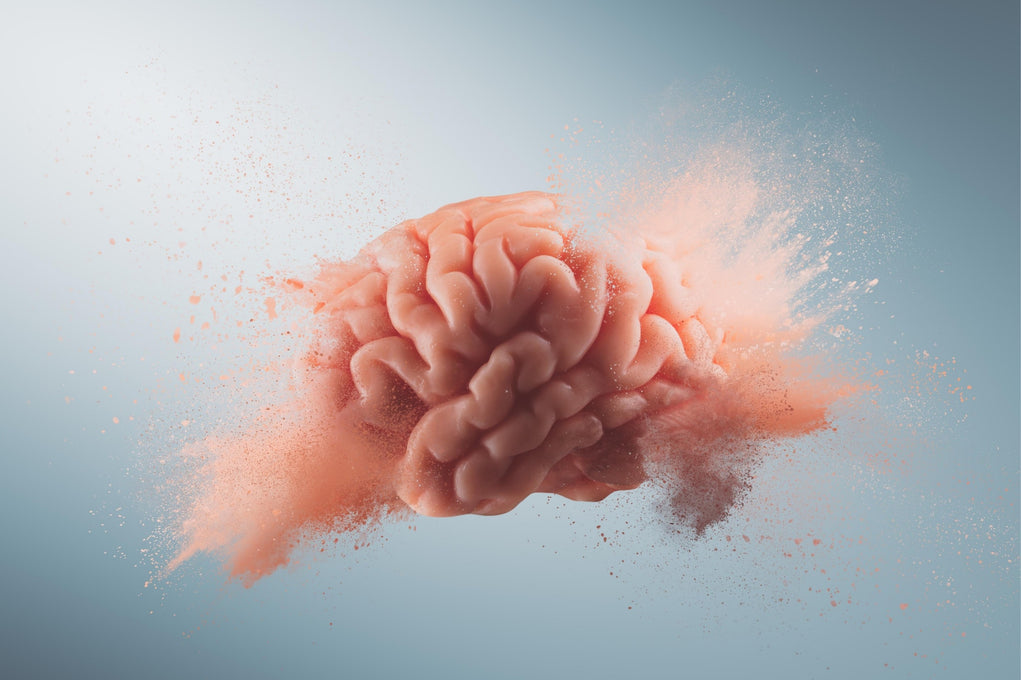The Brain-Belly Connection
27th August 2020 / Health
The Brain-Belly Connection
Emily Shannon

The gut-brain axis is actually nothing new. The old sayings ‘butterflies in your stomach’ and ‘go with you gut’ are phrases that many of us will be familiar with. But what really is it, how does it impact us and what happens when things go wrong?!
Most people have probably heard of the gut-brain axis, or as we like to call it the ‘belly-brain’ connection. It’s a hot topic and more and more evidence continues to emerge about it, but have you ever wondered what it actually is? Well, look no further because we’re going to give you the down-low on the belly brain connection and cover everything you need to know!
Getting to grips with the belly-brain connection
It’s becoming increasingly evident that our gut health plays a fundamental role in the regulation of much more than we think. Studies now show that it can impact both our conscious and unconscious behaviour and brain function. The belly-brain axis is a bidirectional or a two-way communication pathway. This means that the digestive system and the brain are connected and communicate with each other, both physically and biochemically, the physical connection between the two organs is the vagus nerve.
This complex signalling network is made up of neurons, hormones, immune cells, and microbial molecules, all of which work together to keep the communication between the brain and belly streamlined. The gut and brain are constantly communicating and influencing each other, they rely on each other to work together in order to keep us both healthy and happy.
The nervous system
In order to fully understand the link between the gut and the brain, we need to delve a little deeper into how this connection works as part of a bigger picture within the body. It’ll be helpful to understand what the nervous system is made up of, how it works, and why it’s important!
The nervous system has a specific division dedicated to controlling our automatic and unconscious activity, which is integral to keeping us alive (quite literally!). It includes the control of our heartbeat, breathing, digestion, and excretion. This division is called the autonomic nervous system (ANS). The ANS has two subdivisions:
- The sympathetic nervous system: This controls our ‘fight-or-flight’ responses and the physiological processes that allow us to quickly respond to threats, for example increasing heartbeat, breathing rate, blood pressure, and the release of energy sources for muscle activity.
- The parasympathetic nervous system: Often referred to as ‘rest-and-digest’ it controls activities like feeding and digestion.
Whilst the ANS does have control over the gut, the gut has it’s very own nervous system, known as the Enteric System (ENS). The ENS controls gastrointestinal (GI) movements, secretions from the GI wall, glands like the pancreas and gallbladder, and local blood flow. The ENS senses microbial, endocrine, and immune molecules and signals the physiological state of the gut to the ANS and CNS. Amazingly, the ENS is thought to contain more neurons than the spinal cord, and with this in mind, it comes as no surprise that our gut is referred to as the ‘second brain’.
Many chemicals important in brain chemistry are also produced in the intestine by the gut microbiota including tryptophan, dopamine, serotonin, and a neurotransmitter called GABA to name just a few. These essential chemicals show the importance of the belly-brain connection and why problems can arise when things are thrown out of sync.
Factors affecting the belly-brain connection
As our brains and our gut are so closely connected, it comes as no surprise why we may feel nauseous when we are nervous, for example if you’re giving a presentation to a large group of people, or experience stomach pain during times of stress. These are completely normal, but as the two areas are so closely linked, what can happen when our gut is out of sync and still continues to send chemical messages to the brain. With this in mind, it's easy to understand why mental health conditions, like depression and anxiety are now being linked to poor gut health. So let’s take a look at the factors that have an impact on the belly-brain connection!
The key to maintaining a happy belly-brain relationship is nourishing gut health. Keeping our gut happy is therefore the best place to start. Let’s delve into the nitty gritty!
-
Diet
Eating to keep your gut happy is one of the best places to start! After all, the saying ‘you are what you eat’ couldn’t be more true! Incorporating a wide range of fruits, veggies, prebiotic fibre, and plant protein help to keep the gut happy. Our gut is made up of billions of different microbes that keep us healthy, so remember when you eat a meal, you’re not just feeding yourself, you’re feeding your billions of microbes too!
-
Stress
Stress can have a profound effect on the health of the digestive system, impacting the communication between the gut and then brain. Stress has been shown to increase intestinal permeability (AKA leaky gut!). This can lead to physical symptoms, including constipation or loose stools and increase the likelihood of conditions like irritable bowel syndrome (IBS). Want to find out more? Head to our Brain ebook here!
Find out more about the brain-belly connection in our latest ebook. We delve into the science behind the brain, taking a more in depth look about how it’s made up, how it impacts our day-to-day life and how we can nourish the brain to safeguard it for future years! Sound good? Download it here to have a read and get your discount code for 20% off our brain-boosting collection!
From The Blog
-

25th February 2025 / Health
Empowering Women’s Health: Key Supplements for Well-being
Women’s health is a lifelong journey, with each stage presenting unique nutritional and wellness needs. From maintaining energy levels to supporting hormonal balance and bone health, the right comb...
Read article -

17th February 2025 / Health
Empowering Women’s Health: Lifestyle Tips and a Key Supplement for Perimenopause and Menopause
NaomiWomen’s health evolves through various life stages, and the transition into perimenopause and menopause brings unique challenges. During these phases, hormonal fluctuations can lead to symptom...
Read article -

10th February 2025 / Health / Products
The Best Foods and Drinks to Help Your Body Recover from Burnout
Burnout is a growing issue in today’s fast-paced work culture, leaving many people feeling exhausted, overwhelmed, and depleted. While rest and self-care are essential, nutrition plays a crucial ro...
Read article



